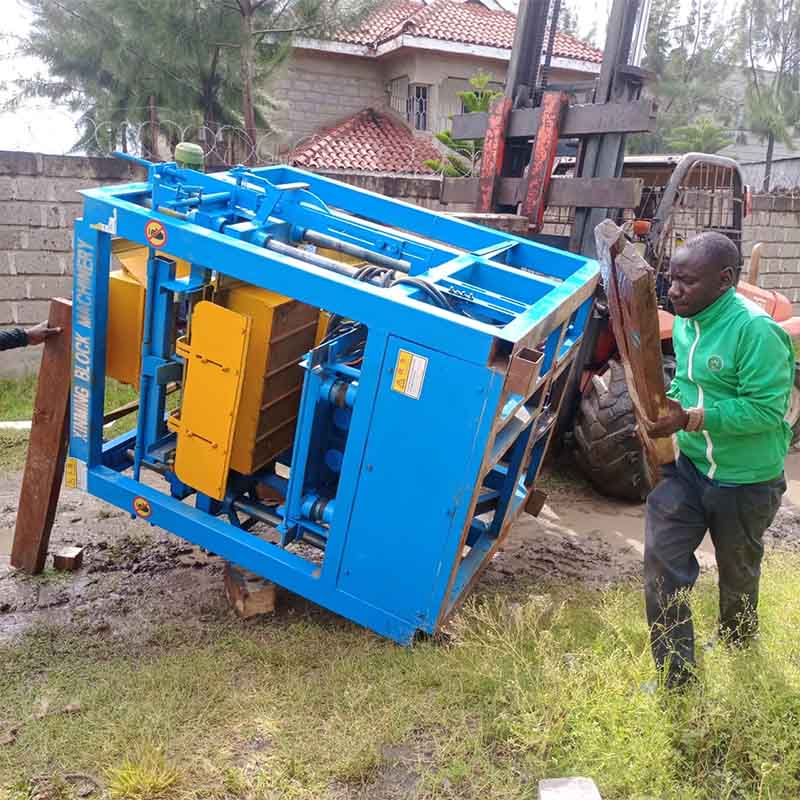
Entrepreneurship has long been celebrated as a driver of economic growth and innovation.
In the construction sector, the barriers to entry for small-scale businesses have historically been high, hindering aspiring entrepreneurs from realizing their dreams.
However, the advent of compact and affordable block machine technology has transformed the landscape, offering a pathway for individuals to establish and flourish in small-scale construction enterprises.
This essay delves into the transformative power of these machines in empowering entrepreneurs, exploring their features, benefits, challenges, and the potential they hold for revitalizing the construction industry through decentralized innovation.
Features of Compact and Affordable Block Machines
Compact and affordable block machines are designed with the needs of small-scale construction businesses in mind.
These machines are characterized by their modest footprint, making them suitable for smaller workspaces and mobile operations.
Despite their compact size, they retain the essential features of their larger counterparts, including the ability to produce various types of building blocks, from concrete blocks to interlocking bricks.
In addition to their physical dimensions, these machines often come equipped with user-friendly interfaces and simplified controls, allowing operators with limited technical expertise to efficiently manage the manufacturing process.
Some models also integrate automation, optimizing production rates while minimizing the need for extensive manual labor.
The combination of compactness, affordability, and user-friendly features makes these machines an attractive proposition for aspiring entrepreneurs seeking to enter the construction market.
Benefits for Small-Scale Construction Businesses
The proliferation of compact and affordable block machine technology has unlocked a plethora of benefits for small-scale construction businesses.
First and foremost, these machines democratize entry into the construction industry, breaking down the barriers traditionally associated with high capital investments.
Entrepreneurs can now access technology that was previously reserved for larger enterprises, enabling them to establish their businesses with reduced financial risk.
Moreover, these machines promote operational flexibility.
Small-scale construction businesses can tailor their production to the demands of local markets and specific projects.
The ability to adjust block types, sizes, and quantities according to immediate requirements enhances entrepreneurs’ agility in responding to dynamic market conditions, setting them apart from larger competitors constrained by standardized production processes.
Challenges and Overcoming Entry Barriers
While compact and affordable block machines offer an unprecedented avenue for entrepreneurship, challenges persist, and entry barriers remain.
One of the primary hurdles is access to capital. While these machines are more budget-friendly than their larger counterparts, acquiring the necessary funds to purchase equipment, set up operations, and cover initial expenses can still be a significant challenge for aspiring entrepreneurs, especially in regions with limited financial resources.
Another challenge lies in acquiring the requisite skills and knowledge to operate and maintain the machines effectively.
While user-friendly interfaces simplify the process, entrepreneurs still need to understand the technical aspects of the machinery to ensure optimal performance and prevent downtime. Addressing this challenge necessitates training programs and support networks that empower entrepreneurs with the skills they need to succeed.
Revitalizing the Construction Landscape
Compact and affordable block machine technology has the potential to revitalize the construction industry by fostering decentralized innovation.
Aspiring entrepreneurs can harness these machines to develop niche products and services tailored to local needs and preferences.
This decentralization of innovation not only fuels economic growth but also promotes diversity and competition within the construction sector, leading to greater dynamism and creativity.
Additionally, the proliferation of small-scale construction businesses can have positive social and economic impacts on local communities.
These businesses often create employment opportunities, especially in regions with high unemployment rates.
They also contribute to localized economic growth by supporting suppliers of raw materials, transport services, and other ancillary industries.
The emergence of compact and affordable block machine technology represents a transformative force in empowering entrepreneurs within the construction industry.
By providing a feasible pathway for individuals to establish small-scale construction businesses, these machines break down entry barriers and democratize access to the tools of the trade.
The benefits, from reduced financial risk to operational flexibility and the potential for localized innovation, are substantial.
While challenges such as capital access and skill development persist, the overall impact on the construction landscape is undeniable.
By nurturing a new wave of construction entrepreneurs, compact and affordable block machines are paving the way for a more diverse, dynamic, and resilient industry.
